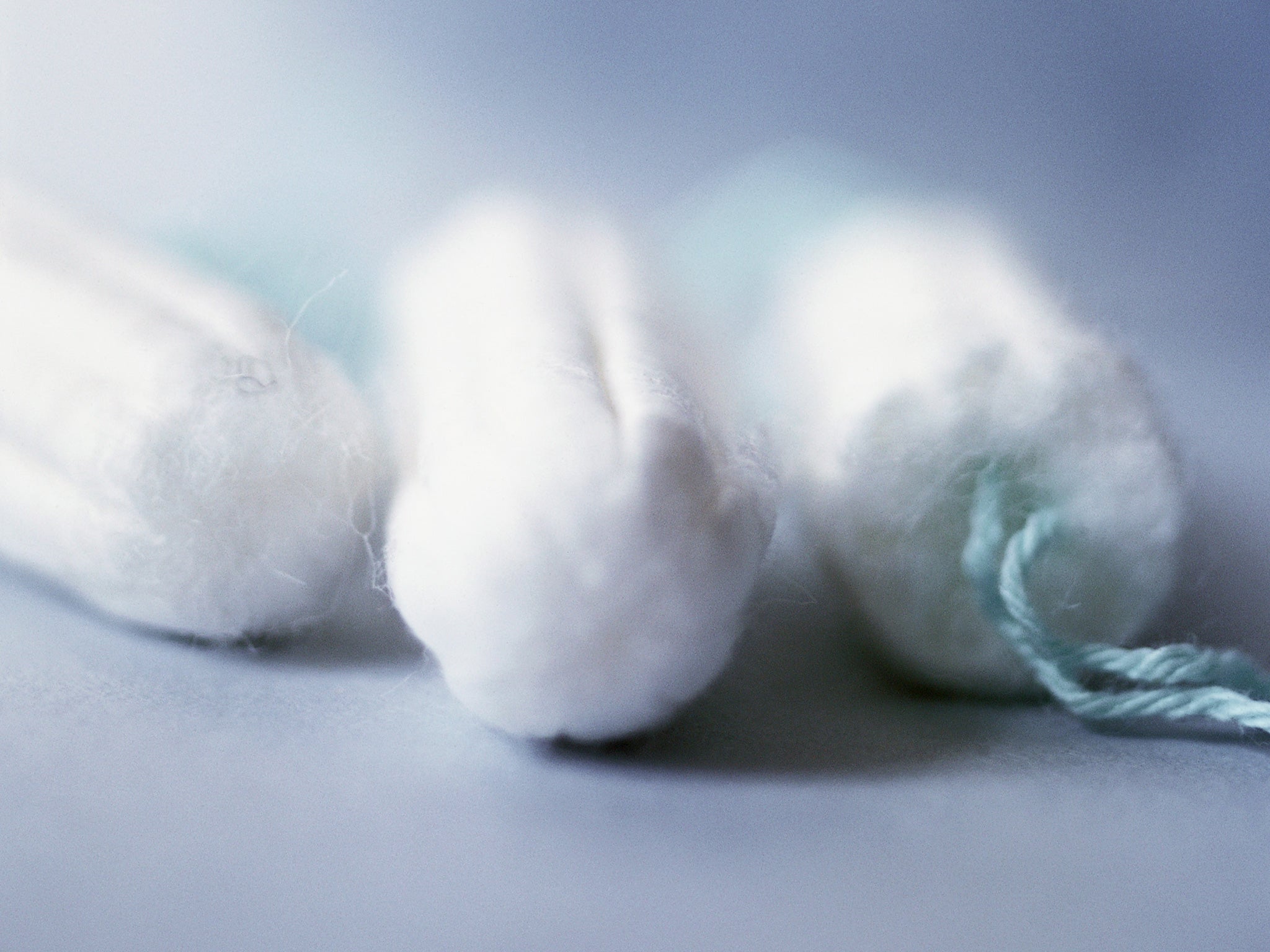‘We are ending a sexist policy’: Period products no longer classed as ‘luxury, non-essential items’
‘Politicians – whether they are men or women – should understand these items are essential,’ says campaigner

Your support helps us to tell the story
From reproductive rights to climate change to Big Tech, The Independent is on the ground when the story is developing. Whether it's investigating the financials of Elon Musk's pro-Trump PAC or producing our latest documentary, 'The A Word', which shines a light on the American women fighting for reproductive rights, we know how important it is to parse out the facts from the messaging.
At such a critical moment in US history, we need reporters on the ground. Your donation allows us to keep sending journalists to speak to both sides of the story.
The Independent is trusted by Americans across the entire political spectrum. And unlike many other quality news outlets, we choose not to lock Americans out of our reporting and analysis with paywalls. We believe quality journalism should be available to everyone, paid for by those who can afford it.
Your support makes all the difference.Period products will no longer be classed as “luxury, non-essential items” and taxed at 5 per cent from New Years Day onwards.
Activists, who have been campaigning to overhaul the so-called tampon tax for years, said the change signals an end to a “sexist” taxation policy which has been in place since 1973.
Chancellor Rishi Sunak promised to axe the tampon tax in March’s budget – with VAT on sanitary products now cut to zero.
Laura Coryton, who started the Stop Taxing Periods campaign in May 2014 while studying at Goldsmiths, told The Independent she launched the petition when periods were not on the political agenda and were even more “shrouded” by taboo.
The 27-year-old, who lives in London, added: “There is a really great sense of relief the tampon tax has been abolished. The government have been saying they will axe it for so many years.
“When I found out about the tampon tax, I didn’t know anything about taxation. At that point, I looked into it. I realised other items escaped tax altogether due to being deemed essential – things like maintaining our private helicopters and eating alcoholic sugar jellies.
“Yet periods products were considered luxury. This change is about so much more than a drop in period products and prices. While of course, that is really important as poverty is increasing during the crisis, it is also about acknowledging issues we deem to be women’s issues are about all of society. We are ending a sexist policy.”
Ms Coryton said the change may seem “small”, but it sends a “strong message” to society – adding that period products were taxed at 17.5 per cent up until 2001.
“The tax shows a fundamental misunderstanding of the needs of so many people who have periods,” she said. “It reflects bad education on periods in school. Politicians – whether they are men or women – should understand these items are essential. Especially as a lack of access to them impacts girl’s education.”
However, she criticised the government for using the eradication of the tax to push a pro-Brexit message after politicians claimed Britain’s departure from the European Union had led to it being scrapped.
Sir Bernard Jenkin, Conservative chairman of the Commons Liaison Select Committee, referred to the tampon tax during Wednesday's Brexit debate.
He said: “I feel we're having a debate about a glass being half-full or a glass being half-empty.
“But I think it's worth reminding ourselves that we will be able to do things like abolish the tampon tax, which so many honourable ladies opposite railed against the government about, only because we're leaving the EU.”
EU law blocks member states from reducing VAT below 5 per cent – with 1 January marking the first time the UK is no longer obliged to follow the European bloc’s laws.
Research by charity Plan International found three in 10 girls in the UK have struggled to afford or access period products during the public health emergency – with over half of them having to resort to toilet paper instead of proper products. One in five said their periods have been more difficult to cope with due to not having enough toilet roll.
Subscribe to Independent Premium to bookmark this article
Want to bookmark your favourite articles and stories to read or reference later? Start your Independent Premium subscription today.


Join our commenting forum
Join thought-provoking conversations, follow other Independent readers and see their replies
Comments